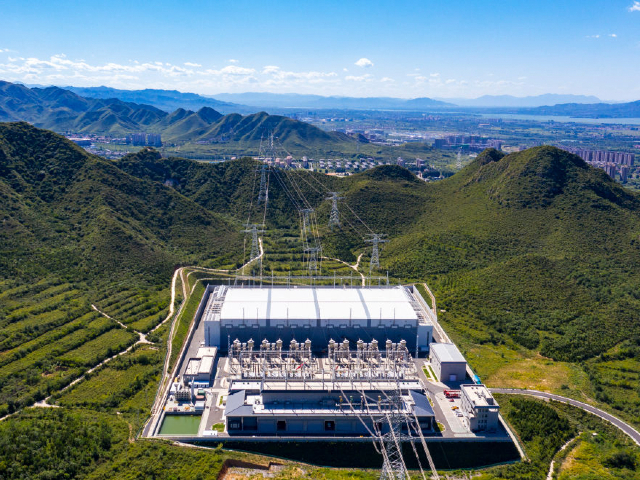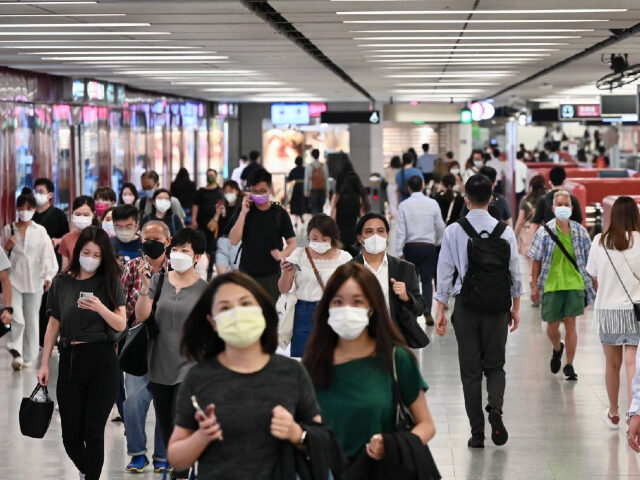China’s State Council on Wednesday released a 19-point plan to revive the faltering Chinese economy. The measures included more fiscal controls, more electricity generation, and more central government spending on agriculture and infrastructure.
China’s state-run Global Times sought to minimize the economic crisis by presenting the hugely expensive and wide-reaching plan as a temporary cushion, because “observers” are certain a “more solid rebound is on the horizon,” while grudgingly admitting that plummeting market shares and increasingly nervous investors prompted the government to implement emergency measures immediately.
“The Chinese economy has been in a recovery trend since June, but the foundation for the rebound is not yet solid,” the State Council told itself when publishing its emergency plan.
The Global Times rounded up the usual “Chinese experts” to hail the plan as another perfectly-calibrated communist plan and applaud the State Council for “lending support to the economy in a precise way, instead of lavishing general stimulus policies.”
The Global Times then admitted the 19-point plan comes on top of a 33-point plan that was already issued in May, evidently without the hoped-for economic boost, since just about every sector of the Chinese economy is currently in deep trouble.
International economists pointed out last week that China’s July data fell below expectations on everything from manufacturing to retail sales, while unemployment is soaring. The heatwave and drought currently causing a massive power crisis and shutting down factories across China will probably end in a few weeks, but there aren’t many other signs of a “solid rebound on the horizon.”

BEIJING, CHINA – AUGUST 25, 2022 – The Yanqing converter station of Zhangbei soft DC grid is seen in Lipao Village, Badaling town, Yanqing District, Beijing, China, on Aug 25, 2022. It is reported that the Zhangbei flexible DC power grid project, which is specially designed to accept green power such as wind power and photovoltaic power, can transfer 14 billion kilowatt-hours of clean electricity to Beijing every year, equivalent to one-tenth of Beijing’s annual electricity consumption. (Photo credit should read CFOTO/Future Publishing via Getty Images)
The Global Times took a break from praising the infinite wisdom and restraint of Beijing’s central planners to tacitly admit the possible implosion of the property sector is their greatest fear:
According to [Shanghai University professor Xi Junyang], the goal of letting cities set their own loan rules to support housing demand shows the inclination of policymakers to stimulate economic growth through support for the property market.
It also shows that the government is lending help to regions that are facing severe problems in the property market, like developers’ capital shortfalls, unfinished buildings and so forth.
It is expected that many cities, especially third-tier or smaller cities, would adjust their policies to ease restrictions on home-buying, Xi said, but house policies are likely to remain mostly unchanged in large cities.
The 19-point plan includes almost $44 billion for “policy and development financial instruments,” which the Global Times suggested will be mostly spent on low-interest loans for “non-commercial projects” – in other words, a frantic effort to make Chinese citizens resume buying houses from developers they no longer trust.
“The policy mix on the back of a raft of pro-growth moves is also expected to inject optimism into the capital market, which has gyrated amid domestic and overseas uncertainties,” the Global Times wrote, without mentioning that one of the biggest “uncertainties” is fear among both Chinese corporations and foreign investors that more insane coronavirus lockdowns will be imposed by a government that refuses to admit any flaws in its “zero Covid” policy.
Barron’s noted on Wednesday that while Beijing seeks to avoid the perception that it will “flood” the economy with “stimulus” money, news of the 19-point State Council plan had virtually no effect on the bond market, so more spending and interest rate manipulation could be on the way.
The Wall Street Journal (WSJ) suggested Beijing’s stimulus schemes and financial controls may be overlooking the brutal reality that the average Chinese consumer has been completely demoralized by the collapse of the property market after twenty boom years. Consumers are spending less money on nearly everything, while property developers are slipping into such dire shape that low-interest loans might not goose enough consumer demand to save them.

COMMENTS
Please let us know if you're having issues with commenting.